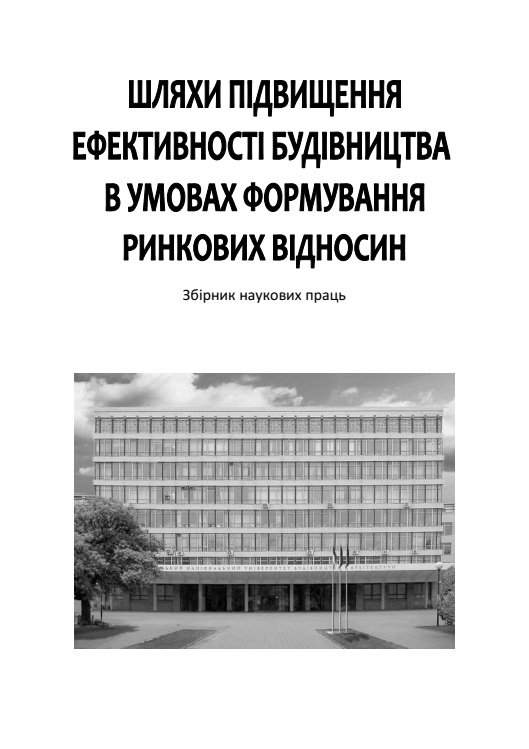Scheduling in modern conditions
DOI:
https://doi.org/10.32347/2707-501x.2015.34.31-38Keywords:
optimization of schedules, the variability of the environment, fuzzy logic, mathematical models, the duration of construction.Abstract
The article describes the implementation of schedules in real terms, taking into account the variability of the production environment and the impact of various factors on the action plan. The author concludes that the use of fuzzy logic in the process of formation schedules and their adjustment is effective from the viewpoint of simplifying the process for their preparation and to save time.
References
Алексеева Т.Р. Особенности инновационного развития строительного комплекса в условиях модернизации национальной экономики // Вестник МГСУ. 2014. №3. С. 236-246.
Колосова Е.В., Новиков Д.А., Цветков А.В. Методика освоенного объема в оперативном управлении проектами. М.: ООО «НИЦ «Апостроф», 2000. 156с.
Симанкина Т. Л. Совершенствование календарного планирования ресурсосберегающих потоков с учетом аддитивности интенсивности труда исполнителей: Автореф. дис. канд техн. наук: 05.23.08 / С.-Петерб. гос. архитектур.-строит. ун-т; СПб., – 2007. –156 с.
Квентин В. Флеминг, Джоул М. Коппелман Д. Методика освоенного объема в управлении проектами. М., – 1999.
Downloads
How to Cite
Issue
Section
License
Copyright (c) 2020 D. Altukhova, A. Tugai

This work is licensed under a Creative Commons Attribution 4.0 International License.
Authors who publish with this journal agree to the following terms:
- Authors retain copyright and grant the journal right of first publication with the work simultaneously licensed under a Creative Commons Attribution License that allows others to share the work with an acknowledgement of the work's authorship and initial publication in this journal.
- Authors are able to enter into separate, additional contractual arrangements for the non-exclusive distribution of the journal's published version of the work (e.g., post it to an institutional repository or publish it in a book), with an acknowledgement of its initial publication in this journal.
- Authors are permitted and encouraged to post their work online (e.g., in institutional repositories or on their website) prior to and during the submission process, as it can lead to productive exchanges, as well as earlier and greater citation of published work (See The Effect of Open Access).

